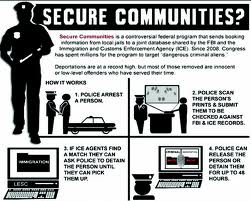
Student visas, one of the visas granted in a large quantities, is one of the most used passages by young people from other countries to the United States. Currently, this visa is granted with great care after the September 11, 2001 incident. However, compared to many other types of visas, it is still the visas granted in large quantities.
The visa falls in the non-immigrant category. This means that a person comes to the United States with the expectation of leaving at the end of his course of study. There are two ways a student visa is acquired. A person already in the US can apply for it. But to do so, he must be in status. If granted, he then changes his status to a student visa holder. If not in status at application, he may have to leave the US to be able to apply. If he leaves, he must make sure that he has not overstayed to the point where he may not be eligible to re-enter the US for three or ten years, depending on how long he had overstayed. The person may also apply from outside the US. If granted he can then come to engage in his course of study.
In general, there are four types of visas for study. They are the F, M, H-3 and J visas.
The F
The principal holder has the F1 visa, and his spouse or child that accompanies him has the F2. To qualify, among others, the applicant must have a foreign residence, which he has no intention of abandoning, pursue a full course of study, and have sufficient financial support. The applicant does not have to possess the funds to meet the financial support requirement, but must show that the funds are available.
To obtain the visas, the applicant must identify a school in the US, and get admission. After the admission, he will be given an I 20, with which he applies for the F visa. If he is outside the country, the American Embassy of his country processes the visa. But if in the US, the I 20 and supporting documents is filed on an extension or change of status form to the INS. In either case, if the INS approves the visa, the student can then start his course of study.
In school, the student may have work opportunities. In the first academic year, and during the entire course of study, he can only work on campus. He could work off campus in the case of a severe economic hardship or for practical training. Practical training can be one required by the course of study of the student’s choice. The student may also transfer from one school to the other. But he needs a completed I 20 from the school he intends to transfer and must inform his current school of the transfer. Additionally, he must be pursuing a full course of study and not engaged in unauthorized work
An F student visa holder may run into immigration problems if not careful. These include running out of status or into problems with the law. A student is out of status if he engages in employment without authorization, not pursuing a full course of study, transfers without permission or fails to complete a course of study on time fails to extend his I 20, and ineligible for resintatement when due. When a student is out of status, he is deportable.
Sometimes, an out-of status student may be reinstated if the out of status was due to circumstances beyond his control or it would result in extreme hardship if deported, currently pursing or intends to pursue a full course of study, not engaged in unauthorized employment and not deportable at the time of the reinstatement petition. The student must prove the cases above with supporting documents.
If an F1 visa holder loses his visa, his derivative beneficiaries automatically lose their statuses.
Vocational Students
These carry the M visas. They must meet all the requirements of the F visa holder, except that they must be admitted at a vocational or nonacademic institution.
J Visas
These are visas for trainees or professors or short-term scholars, who come to the US to participate in an exchange visitor program. Many of them are subject to the requirement of returning to their home country or country of last residence upon completion of their two years. Some are not. Sometimes, the two-year residence requirement is waived if the J visa holder can prove possible persecution in his home country, exceptional hardship to his U S citizen or Permanent Resident spouse or child or the holder’s country does not object t his going back home.
H-3 Visas
An H-3 visa applicant must meet the following requirements: He must have a foreign residence to return after the training; will not be placed in a position in which citizens and resident workers are regularly employed; and will not engage in productive employment unless incidental and necessary to the training and will benefit outside the US.



